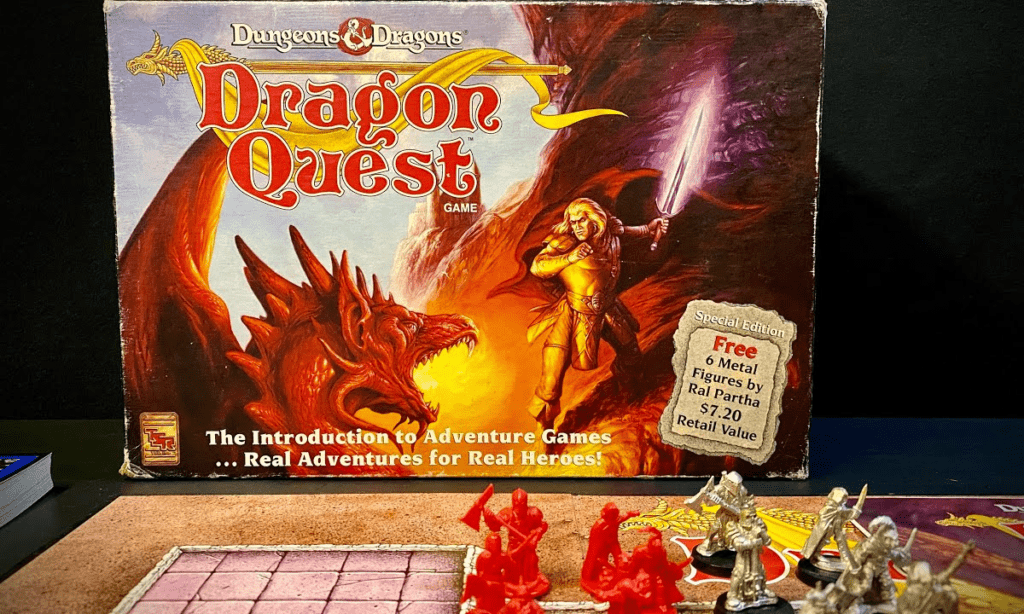When we talk about TTRPGs, one of the names always mentioned is Dungeons and Dragons (D&D). This game was the peak of Tabletop Roleplaying Games for the longest time. Nowadays, there are many competitors, and with the number of games, themes, and mechanics to explore, a game exists for everyone.
If D&D is fantasy, you can play a sci-fi game, a superhero story, or even games based on popular franchises like Star Wars or Lord of the Rings. Various systems focus on different dice; rather than just the d20, there are d12, d6, and even d2 systems.
With the general rule that there must always be a Game Master leading the story on. Here I will be talking about eight games that I stuck to and still play even to this day. While they are not exactly fit to everyone’s tastes, I believe that these are the ones that stand out among their themes.
I cannot say that I am as old as D&D, but I have been playing for over a decade. At some point, I wanted to try something new, so for a few years, I decided to explore other systems.
While the older editions of D&D are fun, there is something encapsulating about learning a whole new system and exploring a completely different world. I ended up learning how to run those games rather than being a player.
There are hundreds of TTRPGs, and I have played dozens, learned how to run several, and enjoyed most of them. I picked out the ones that are unique or stand out among the others. Hopefully, there is a game here that suits your fancy.
My Favorite Games
- Pathfinder: a fantasy game that is much more detail-oriented and rules-based than D&D.
- Shadowrun: Fantasy mixed with Sci-fi leads to an interaction-oriented game. Not necessarily combative, but still all the fun.
- World of Darkness: A system of intrigue and mystery; A gothic narrative that can take place in the modern day.
- Call of Cthulu: Lovecraftian Horrors hit the tabletop as you do your very best to keep the humanity you know safe from eldritch beings. This is more scenario-based discovery and roleplaying as you try to avoid fighting the inevitable.
- Blades in the Dark: Thieves and heisters rejoice as this game is the Ocean’s Eleven experience rolled onto a table. While scenario centric, the mechanics unfold for a suspenseful story, and the rewards are ripe for picking.
- Warhammer 40K: While the system also applies to the fantasy version, the Grim dark tabletop has much more backstory and lore than applies to any game. It’s rough, but the scenario’s difficulty is the game’s main draw.
- Lancer: They made a system where you pilot giant mechs to fight each other and other mechs. It’s an action lover’s dream and even has an inventory and equipment management system to immerse in kitting out your personal Lancer.
- Fate Core: Whether it’s superheroes, futuristic societies, or primeval entities, this TTRPG has a flavor of gameplay for everyone involved. It’s free-flowing and heavily focuses on interactive storytelling.
Biased Reasonings
Given that this is a personal recommendation, there is no way that my biases can stay out of this list. I love roleplaying games and, more importantly, the interactive element of the game. These are not ranked, but rather are the eight best that are equally good in different ways. To rate a game as one of the best, they must fulfill these conditions.
- Encourages player interaction
- Unique mechanics
- Interactive storytelling
- Intensive world-building
- Replayability
- Fun during sessions
- Quick Problem Solving
- Allows for Homebrew content
As you can tell, a lot of what makes TTRPGs great for me is the RPG portion of the game. Interacting and discovering what secrets lie within the world as a player and as a GM help make it feel more alive.
Of course, there’s also enjoyment in succeeding in the main story, a quest, or a job; fighting your way through endless mobs or going up against giant bosses helps players fulfill their dreams of being heroes.
This also takes into account how fun the session is throughout the entire process, from the high points (like the action) to the low points (like solving a ruling issue or a slog of an encounter) and if it creates a situation where you want to keep on playing. Kind of like a cliffhanger or the feeling of going on a winning streak, that sense of fun that keeps you wanting more.
Pathfinder
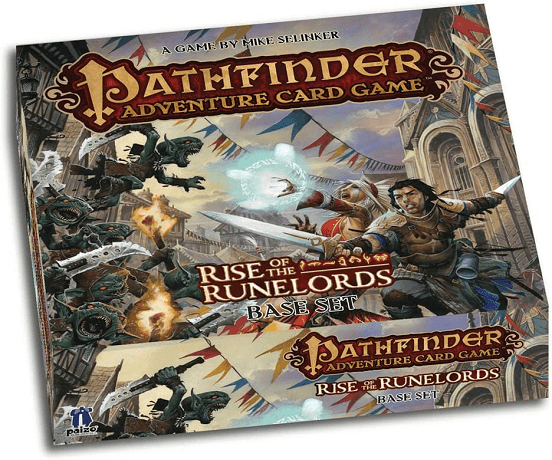
For a long time, Pathfinder has competed with D&D over being a Fantasy TTRPG. D&D was made to be streamlined and intended for ease of resolution (both in-game and out-of-game); conversely, Pathfinder added more rules and made the system more complex to allow for more flexibility when resolving situations. Since it was made based on D&D 3.5 edition, many of its core mechanics are the same, from stat points to leveling up.
If you are willing to go the extra mile when running the game, then this system’s options and flexibility make you feel powerful.
Theme: High Fantasy
Taking place in the world of Golarion, this massive expansive world is free for the players to explore. From fighting Dragons to hordes of undead, many adventures are waiting to be found. Paizo (the people who sponsored Pathfinder) even regularly release additional content that increases the variety of game-related activities. Classes and monsters are equally strong here, and given the flexibility, it means endless hours of fun.
Dice System: D20
Like in D&D, they use the D20 primarily while using other dice to deal damage or roll for specific effects. Since this game was taken from the 3.5 edition, it is similar to this level.
Gameplay: Action Centric
Much like D&D, this is scenario-based and action-centric; however, they have more out-of-combat options to skirt around encounters. They can discover more about oncoming encounters or the world and make the world they explore seem more vivid and alive.
In combat, they must keep track of more things, circumstances, weapons, and even enemies that affect how well their weapon works in combat.
They even add up bonuses and how those bonuses stack differently. D&D, in its current iteration, has limited multipliers and stacking bonuses so that they can keep the game from spiraling out of control.
On the other hand, these limitations are only gated if they have the same source in Pathfinder; it rewards optimized gameplay while also being balanced for a casual playthrough.
To talk a little more about their out-of-combat shenanigans, you have skill ranks to invest into specific skills that allow you to gather information, speak with NPCs, or even craft items! There is a supported rule and system for many out-of-combat actions that D&D hand waves away.
Sessions always end up lasting much longer while playing this game, and while daunting at first, the flexible freedom you get in return is well worth the effort.
Community
Aside from making modules and adventure material, the community is much like the D&D community. You will always find a party looking for more players, and as popular as this game is, the online community is just as good as offline. There are websites dedicated to explaining and trying to streamline the rules process. Many shows use the 2nd edition or have modified it for a better viewing experience. They always welcome a new player.
Personal Experience
My first experience with Pathfinder was a slow slog with a serious learning curve. Since they use tags to determine how certain abilities and actions interact quickly, it was difficult to learn the hundreds of tags and what they did.
As a player, it allowed for much more freedom in actions since there was a rule or a tag that quickly settled the event rather than waiting for the Gm’s ruling.
I admit that I was probably lucky that my GM at the time was very good at explaining what I needed to remember during the session. It was one wherein you could circumvent many issues with out-of-the-box thinking by messing with the battle map through sabotage and creating items to suit the scenario.
I was surprised that coming from D&D 5e that the pets were effective while we were also allowed to create things like bombs and traps. Its great to have a ruling for everything sometimes.
Shadowrun
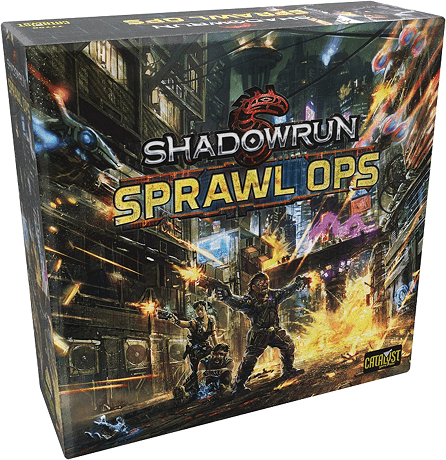
A less popular game nowadays, but it used to be up there along with the previously mentioned titles. Shadowrun takes place in a postmodern version of Earth; as newer editions of Shadowrun come out further into the future, the game takes place.
It is set in the 2080s; an event sometime in the future causes magical creatures to reemerge into our regular Earth, causing a series of changes to the world as we know it. Humans goblinized to become Orks or Trolls, children were born elves or dwarves, and certain tribes could contact spirits to aid them.
Theme: Cyberpunk
So technically, this is a weird mesh of Sci-fi and fantasy, but I would call it Cyberpunk because it takes place in Earth’s future, where technology has advanced to a point where cyborgs and robots are as common to see as spirits and monsters. (which is to say very common)
You can kit yourself out with armor, weapons, and guns or rely on magical means to deal with combat. It’s a setting that works surprisingly well despite its seemingly chaotic story.
Dice System: D6
Shadowrun uses a D6 system to determine success and failure. Usually, you have to roll to hit a target number; the more improbable the action you want to perform, the more difficulty increases. Even attacking is rolled using these d6s in an attempt to hit against the enemy’s evasion or armor.
You gain more D6s the more skilled you are at that weapon or ability, thus making it easier to hit that target number. However, in more recent editions, it has turned into how many “hits” you make in those sets of rolls; a hit being a five or a six on a d6.
While it is not recommended to be a jack-of-all-trades type character, if the target number is low enough, you can play as any ShadowRunner.
Gameplay: Scenario Centric
So, rather than being action-centric, what makes this game interesting is the prep time and pre-combat planning before going onto the mission.
Depending on your build, you can get through a mission with more than just brute force; being a Shadowrunner (What they call the player characters) means that you have a certain level of expertise, whether hacking or talking, or shooting people.
Each scenario has many ways to progress, and depending on how your party is composed, you can either try your luck at specific paths or entirely specialize in one thing or another.
Since it is scenario centric, you do not necessarily need to progress like a story, each session can be separate from others, and it could even star different Shadowrunners. The world is constantly moving on, and while one group may be busy preparing or in transit for a mission, another group of Runners can take their place as the player characters.
Community
Everyone is amiable about this game; however, the community is much smaller; depending on where you are, it could be nonexistent (like in the Philippines).
Everyone wants more players to get into the game so that they have more people to play with. While they have little say in what is made and how the designers come up with the next sourcebook, the world constantly updates, and as such, the Runners need to keep up.
Personal Experience
Shadowrun is a vast change from D&D, from theme to gameplay to even character choices. Here the out-of-combat situations are just as important as in combat.
I was playing with a totem summoning specialist who used so many auras we had to keep track of that he looked like a character straight out of an MMORPG. It was nice to see the individual builds and specializations that each character brought to the table.
I was playing a strength and health Orc, so I was the one moving things around and running in to soak up attacks while my friends charged after me. In the melee, my fist was as strong as my allied samurai’s sword, though as the trade off I could not hit the broad side of a barn. It was a refreshing experience that kept me coming back with new characters to explore each time.
World of Darkness
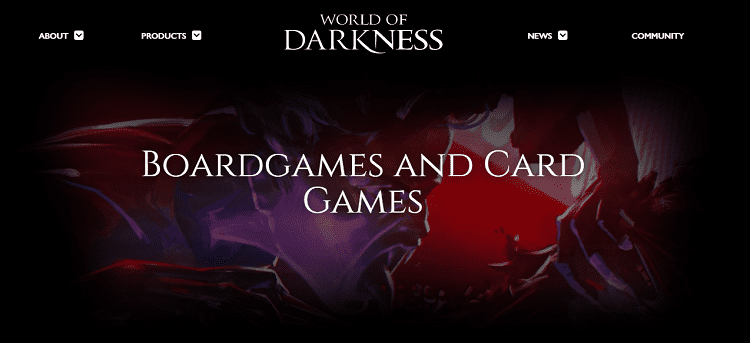
So there are many World of Darkness games; one of the most popular would be Vampire: The Masquerade. In this technically victorian but possibly modern take on the world, the supernatural was kept hidden away from society.
You play as part of this underworld, whether a vampire, a hunter, or a werewolf. Here it is all about the story, how you keep your true identity a secret and how to solve the problems that come your way.
Theme: Supernatural
Depending on the game master, the game itself can take place anywhere; I have seen games take place all over Europe, moving around to find the Coven tracking them down, but I have also seen games take place in America wherein the supernatural is seeping from the seems and regular folk turned player characters have to respond to this unknown threat.
So depending on which World of Darkness game you are playing, it can turn from hunter to hunted; the abilities and equipment available to you are wholly dependent on whether you are a supernatural creature or one that stops them.
Dice System: D10
The system is called the Storyteller System, wherein the traits you assign your characters during character creation determine how effective they are at performing specific tasks.
Unlike stats, this determines how many D10s you will roll rather than receiving a bonus to rolls. To succeed on a roll, you must have a certain number of successes (usually a seven or higher). So unlike other games wherein you can luckily roll into success, if your character cannot physically perform the task, it is impossible from the start.
Gameplay: Story Telling
As said previously, the system used is called the Storyteller System, wherein the conflicts are explainable, and it is up to the GM and players to solve their problems how they wish to do so. Using traits assigned to their characters encourages roleplaying to play to their strengths.
Some players I know will even play to their weaknesses if the story calls for it; it is a game of intrigue and mystery on top of the occasional combat and encounter.
Sessions are much more back and forth than the Gm narrating the story the players choose to play. It is more akin to sharing the story, as sometimes the players will surprise the GM with their decisions or how they interpret a situation.
I recommend this game to those who want more of a social roleplaying aspect of the TTRPG genre.
Community
The players of this game heavily emphasize roleplaying; they are usually open to explaining the rules and how to play the game regularly, especially for new players. I find that they tend to delve deep into the story’s lore and are willing to share their perspectives and understandings of it to the table; it makes for an intriguing experience since sometimes the Gm is surprised by the result of a party’s interpretation of the story.
Personal Experience
This game is one that I always want to run but can never find a consistent party to run it for. I played Vampire: the Masquerade from all of the World of Darkness games but from what I hear, the difference is not that apparent and is mostly lore based. I truly enjoyed the intrigue and mystery of discovering the weird happenings around town.
While there was not too much combat, the focus of our session was getting our characters into the supernatural side of things. It surprised me when all of a sudden, my teammate was revealed to be a vampire as well. The story and setting were amazing. While I enjoy combat, this battle of the mind was also extremely engaging since we learned how deeply the supernatural was ingrained in our society.
Call of Cthulu
This is the game where you do not necessarily win but rather delay the end. You play as regular investigators looking into the abyss as these elder gods begin to stir and cause havoc in the cities you love.
Theme: Eldritch Horror
There is a tremendous sense of dread and inevitability while playing this game. It always feels great to explore and understand the mystery behind the story, but the saying “ignorance is bliss” comes to mind when your character is slowly driven insane in the process.
I will admit that this game is hit or miss with many players, but when it hits, it sticks with them for years on end. Monsters seem impossible to defeat, and with each clue you uncover, you risk slipping into the madness so that you can have a chance to defeat that same madness.
Dice System: Percentile Dice
Your actions all have a percentage to be successful, much like how your characters tamper with forces beyond their understanding; many of their abilities are massively left to luck to see how great it succeeds or fails. Of course, with the right equipment and abilities, the odds of success increase, but seldom will you have an action guaranteed without a cost.
Gameplay: Story Telling/ Investigatory
You play as mortal investigators trying to solve the supernatural happenings in the city and try to stop them permanently. As per the genre, you are at constant odds with your madness as the creatures and secrets you see are not meant for mortal eyes.
Gather your fellows as you explore the city around you, find cultish activity at every corner, and discover how deep this rabbit hole into the abyss truly goes. It is difficult because you are not meant to be heroes performing miracles but regular people struggling to fight back against beings far beyond our understanding.
Community
In a fun way, the players who are into this game get deep into the lore that H.P. Lovecraft has made. Often, the homebrew games tackle other elder gods, some of which you might not have even heard of, or they explore other planes of existence as your investigators try to return home. It’s interesting how much a community can keep developing a game separate from the original creator.
Personal Experience
To be honest, the first Call of Cthulu game I played, we lost after six and a half grueling hours of investigation. It kept us on our toes and made sure that we were constantly thinking of the connections between cultists and the eldritch horror (eventually, we found out it was Azathoth).
What was meant to be a four-hour light session ended up lasting much longer because we kept on asking the GM if she was ok with extended.
No matter how small our chances looked, we wanted to keep going to get even a hint at solving the cult problem our small town was facing. Losing to mismanagement of madness and a few low rolls only made us want to play again this time knowing much more than before.
Blades in the Dark
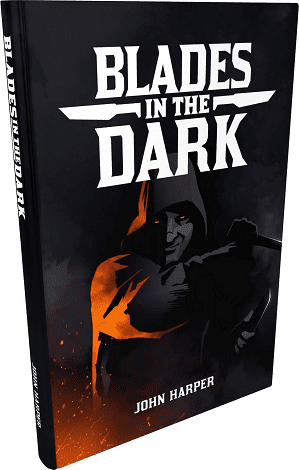
Rather than tackling a problem through preparation, this game is more about facing it head-on and seeing how you can get around it. What makes it unique is its Flashback system which allows your players to retcon solutions to their problems several times.
Seeing as your players are not meant to be heroic fighters but rather those who stay within the shadows, it makes for an exciting problem-solving adventure.
Theme: Industrial Fantasy
In this massive developing city, you are a gang of scoundrels, misfits, and thieves who call the underworld their home. There is no magic in this world, but it is fantastical, given the number of things your players can do and get up to without raising a weapon.
If you are into spy or heist movies, this is definitely a must-try. You and your band of Blades are essentially the heisters setting up and performing the entire film every session.
Dice System: D6
This d6 system uses Full and partial success and failures to mark out the story’s plot. You roll a certain number of dice all at once and take the highest result. Rolling a six means full success, a four or five is partial success, and one to three is a failure.
This emphasizes choosing the right man for the job, as you will rarely ever go through a whole mission as planned, so the best you can do is have the right people to improvise when things go south.
Gameplay: Problem-Solving
You generally want to avoid a fight in this game as you play hidden thieves and spies on an operation. As you build your blades, you must specialize in specific abilities or tools to succeed in the incoming operation.
The game itself plays out like a sandbox until it is time for the operation. You can talk to whomever and prepare tools, maps, and plans; when everyone feels ready, the Gm allows them to roll an Engagement roll to see how their operation is playing out before the players step in and take action.
They use an Action vs. Resistance mechanic that determines what purpose the rolls are for, then, depending on the result, the scenario changes as per the Gms narrative for the players to react to and play out.
When the going gets tough, the players can use the Flashback system to call for something they did not do during the sandbox phase. They can retcon a solution into existence at the cost of stress and taking from a limited pool of actions. While not necessarily the perfect answer, it can go a long way toward resolving a situation.
Community
I am surprised to see how niche this game is online. It is difficult to find a Gm ready to run a Blades in the Dark adventure compared to any previously mentioned titles. However, to those with a GM, the stories they tell and the shenanigans they get up to are always desirable and make you want to play the game. Many games I have seen are homebrew since most GMs are already very experienced, and the community is willing to share their resources, whether official or homemade.
Personal Experience
When I heard about this game, I knew I had to try it; we started a small crew of four and had to steal important documents from a rich factory owner’s mansion. The first time we encountered something none of us prepared for was when we got past the first gate and were stuck outside the doors.
Considering our odds of breaking in, our lockpick broke with a critical failure, so we had to improvise. Flashing back was a cool mechanic at first, but when it began to rack up stress, we soon realized how little we had done to prepare for this heist truly.
I would say that the most fun comes out of whatever you did prepare going through as planned; there’s something addicting about watching all the pieces fall into place.
Warhammer 40K
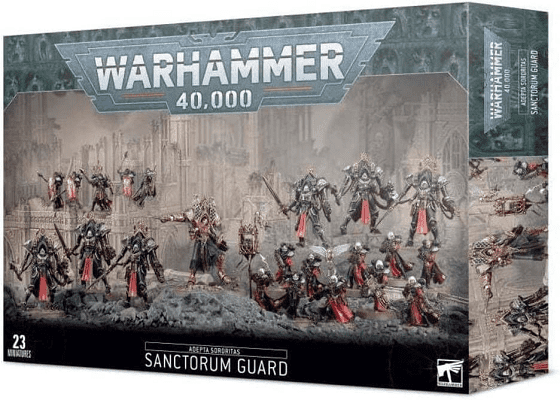
There are a lot of tabletop games that Warhammer40K has branded. While known for its massive army versus army combat, did you know that they have a suite of RPG games to choose from depending on what story you wish to pursue? I do not want to delve too much into the army battling but I will admit that it is a great hobby to get into if D&D is not your sort of game.
Theme: Grimdark Scifi
In the Grimdark future of humanity, there is only war. This is the opening line you will read or hear from most Warhammer 40K media, and it shows as their games are always gritty and usually end up with the worst-case scenario. From hostile aliens to hostile cultists, it seems that only conflict awaits a player of this game.
The lore is also worth noting given how expansive it is, for the TTRPGS You experience the rich world each time you play the game as the story is as important as the rolls. On the other hand, the Wargame has close to no story but feels so fulfilling watching massive armies engage one another on the tabletop.
Dice System: Percentile/ D6
So, most of the TTRPGS use percentile dice to see how well you perform an action. This is modified by the character and enemy’s stats when it comes to an engagement or by the person involved if they are attempting a skill check.
For the Wargame and specifically Wrath and Glory they use D6s. The Wargame uses it to roll for attacks and see if they actually do damage. In Wrath and Glory, this is used to roll for a certain number of successes modified by your skill in the check. With 6s being considered super successes, they are worth double the amount.
Gameplay: Story-Driven action/ War gaming
So in the TTRPGs, you play a specific type of character depending on the TTRPG. In Rogue Trader, you are a rogue trader; in Deathwatch, you are a Space Marine; in Dark Heresy and Wrath and Glory, you create your character based on a predetermined list of choices to mix and match your ideal character. From there, you go on missions for the emperor, or in the case of Wrath and Glory, for your Glory.
For the War game, it is more restrictive, there is hardly any story at all, but instead, you get the freedom to create your army so long as you meet the predetermined criteria (either point value or power level). From there, you wage combat to finish specific missions or to wipe out the enemy completely.
In either case, both games are satisfying to play, but scratch two different itches regarding genre and type of game you wish to play.
Community
Everyone who is into the Warhammer 40K universe is always willing to talk about the lore and why you are doing specific actions. Some are more hardcore to the point of memorizing the code of arms that the space marines have, while others are more laid back and offhandedly explain specific plot points and lore.
Just keep in mind two general statements that most agree with: Cadia stands, and For the Emperor.
Personal Experience
My first experience with this game was death; we were playing Wrath and Glory and were a squad of the Deathwatch. You would think that a team of elite marines had the problem covered, and for the first part, it was fine and dandy.
We were exterminating a Genestealer cult, and our GM showed us the power difference between their guns and our armor; that was to say that we were nearly gods walking through the base.
Then when we came to the actual aliens, we got absolutely destroyed. The Tyranids were fast, and we misjudged how close we could be; it all changed in one turn then we were completely wiped out. It was an exhilarating time truly exemplifying the grimdark nature of the game.
Lancer
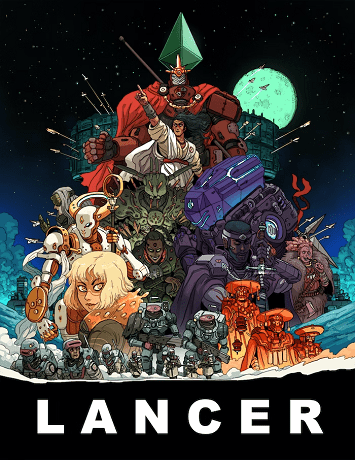
This game has recently been on the rise in popularity. It has a relatively unique system that is fun to play. Here you play as mecha pilots called Lancers; you are tasked to complete objectives per scenario or to fight other players in PVP combat.
Theme: Sci-fi
As stated, you are mecha pilots; this comes with the whole kit. From building up your Mech as time progresses, and you earn resources to the actual in-game combat where you slam down on your enemies as a nigh-unstoppable force. It brings in that feeling of invulnerability until another Lancer comes in to fight you.
Dice System: D20 + D6
It uses a d20 to roll for successes with D6s, usually to supplement a roll or to use as damage. From there, it is a straightforward brawl as this game is heavily combat focused.
Gameplay: Action/equipment Centric
I would say that this game is “equipment” centric because you get to customize your mech frame and what goes on it. Mech frames are divided through factions, and while in PVP, the Gm will allow you to use anything, in PvE, you are much more restricted to whatever you earn.
Many weapons either take up the heat (which eventually damages your Mech or impedes its performance) or use limited charges to give off that feeling of running out of ammo mid-fight.
Once you have decided on a loadout, you enter combat, which is generally the gameplay loop. You have to manage your Mech’s health and structural integrity while using your pilot’s skills to grab the advantage whenever you can.
While there are a few out-of-combat things, such as repairing or choosing missions, a lot of the focus is on that rush of giant robots beating each other up.
Community
Given its rising popularity, there is more of an online presence than an offline one. A website is fully dedicated to making the experience easier for newer players. “Compcon.app” brings that futuristic feeling of being briefed before a mission. I recommend this game if you are looking for that giant robot hype.
Personal Experience
So my first encounter with this game was with my friends and me looking at it after a recommendation and throwing customized mechs against each other. Even that was plain fun as we wreaked havoc on each other. Later, we got into a session where our team was fighting a mix of regular people and other Lancers.
Even without a story, there was a weird sense of joy in the customizability of the mechs. The jubilation of having no classes but rather a completely free source of skills, weapons, and abilities to choose from made it extremely fun for us. I admit, though, theory crafting and building creating is more than half the fun.
FATE Core
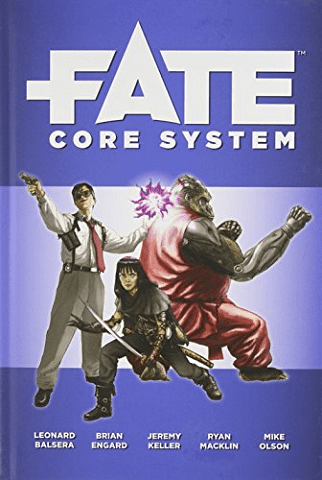
Last on our list is one of the most free-form games out there: FATE Core. It is no exaggeration to say that this game is entirely up to the GM regarding theme and design.
What supports it is the simplistic system that runs the game and the way it tags specific actions and characters to give them characteristics. If you are looking for a game that focuses heavily on its story yet at the same time leaves the story entirely up to the Gm, then this is it.
Theme: Up to Gm
It is up to the one running the game. I have played a superhero game, one where we were power rangers, and even one that took place in Abraham Lincon: Vampire hunter. So this can be anything.
Dice System: D2/D6
So typically, there is a special FATE dice that has six faces: two successes, two failures, and two neutral. From what I have seen, plenty of GMs leave it up to a coin flip and ignore the two neutral faces, while the rest use a regular D6 and assign numbers as they please.
Gameplay: Story Centric
So when I say tags, I mean that nearly everything has a turn of phrase that affects the game. What pushes the story further are FATE points that allow you to add to a roll or reroll it; these are given at the start of a session and by the GM when s/he sees fit.
Characters are given Aspects, skills, and stunts to help define who they are. These are all tags that give your character traits to use in the narrative; perhaps he is curious to a fault or tough as nails; these allow the player to perform actions that characters without these aspects cannot.
The game is entirely narrative, and while your success or failure is a literal coin flip away, you can still react to a failure as part of story development. Just as how the Gm is free to do whatever they wish with the story, players are free to react to it as they please. This is a collaborative storytelling adventure.
Community
The community is wild but small, this is a very old game in comparison, and I don’t know if they are still releasing material for it. However, it is straightforward to learn, so if you want to dip your hands in this game sandbox, many resources are left ripe for picking.
Personal Experience
When I played Fate, I was so confused when the DM told me not to worry about rolling. Instead, we were using Fate coins to go back and forth about the story being told. We were hero trainees doing some vigilante work when a bank heist happens, and the professional heroes were out.
Being able to describe most things in great detail was a refreshing breath of air compared to the “I attack” type games. I have a great bias for interactive story telling though so perhaps my great enjoyment stemmed from there.
FAQs
Question: What is the game most similar to D&D?
Answer: Pathfinder, since it is based on D&D 3.5 edition it has many mechanics similar to the gameplay of D&D.
Question: Is Pathfinder better than D&D?
Answer: Strictly speaking, Pathfinder is more difficult to learn and play than D&D 5th edition. What gives it its charm is that due to the numerous rules and regulations, there is more freedom for the players to perform certain actions since there is a rule attached to it. Similarly, the community is also of the same mind that this game is not for first-time TTRPG players.
Question: What is the best TTRPG?
Answer: There is no best, in my opinion. Some TTRPGs are better than others, but when it comes to an absolute best, personal biases and preference come into play that, creates a barrier from “best.”
The ones listed are great TTRPGs, but if there is a genre or theme that is more preferred that I did not mention, then there would be people who would go against the list and comment on those other games that fulfill their niche or genre.
In the End
These are a few games that can replace D&D if you need a break from it. While I know that there are many more out there (especially Indie games), I can vouch for these as I play them all the time when my Homebrew campaign is on pause. If you are looking for a breath of fresh air, or I managed to hit a genre that you were interested in trying, why not give it a shot?
Recommended reads:
- Best Ticket to Ride Games Ranked - June 26, 2023
- Best RPG Board Games - March 22, 2023
- Best 2000s Board Games - March 8, 2023

